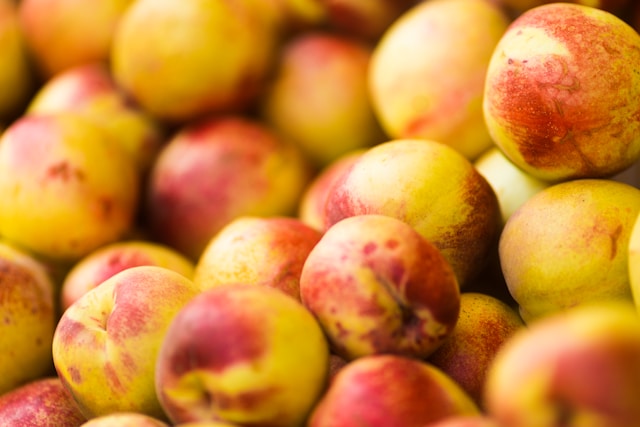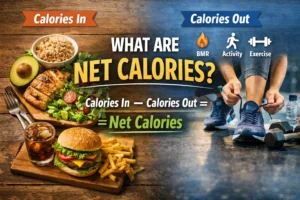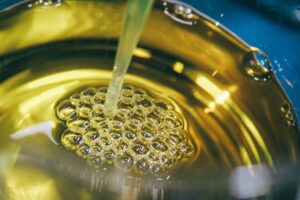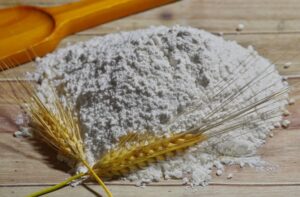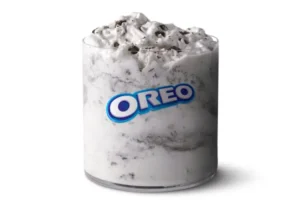If you’re counting calories or simply curious about healthy snacking, “nectarine calories” is a phrase you’re likely Googling. So let’s dig into that, explore how they compare across sizes and varieties—like white nectarine calories and large nectarine calories—and uncover some nutrition facts you’ll actually want to remember.
Why Nectarine Calories Matter
How Many Calories in a Nectarine?
One small nectarine (about 2.5 inches in diameter) clocks in at just 60 calories, equivalent to roughly one cup of sliced fruit. That’s lighter than many other tropical picks—bananas, pineapples, and mangos, which often hit the 100-calorie mark per serving.
Calories in a Nectarine vs. Other Fruits
Here’s a quick comparison:
- Banana – about 100 calories
- Pineapple (1 cup, diced) – around 100 calories
- Half a mango – roughly 100 calories as well
By contrast, a nectarine offers a lighter alternative without sacrificing flavor or sweetness.
Calories in Nectarine: Nutrient Overview
Beyond just calorie counts, nectarines deliver key benefits in a compact package:
- Fat: ~0.44 g (less than half a gram)
- Protein: ~1.4 g
- Carbs: ~14.3 g total – including ~10.7 g of sugar and ~2.3 g of fiber
That fiber and natural sugar mix gives you energy without a huge calorie hit.
Micronutrients—Small Fruit, Big Benefits
Here’s what that small nectarine brings to the table:
- Potassium: ~275 mg, great for heart and muscle function.
- Calcium: ~8 mg, plus iron, magnesium, phosphorus, zinc, copper, manganese, vitamin C (~7.3 mg), B vitamins, vitamin A (~452 IU), vitamin E, and vitamin K.
These nutrients make nectarines a nutritional multitasker—hydrating, energizing, and good for muscle recovery, skin health, and more.
Large Nectarine Calories: What’s the Difference?
“Large nectarine calories”—let’s quantify that. While the original data doesn’t specify “large,” we can estimate based on size scaling. If a 2.5-inch nectarine is ~60 kcal, a larger one (about 3 inches) may fall between 70–80 calories, depending on water content and sugar load. This makes them still much lighter than caloric giants you might snack on!
White Nectararine Calories: Does Color Affect the Count?
You might wonder: do white nectarines pack fewer calories? Not really. The calorie difference between white and yellow-fleshed nectarines is minimal—both hover around 60 kcal per small fruit, since their basic water, sugar, and fiber content is very similar. That said, white varieties often taste sweeter, but this doesn’t change their calorie load significantly.
Frequently Asked: How Many Calories Are in a Nectarine?
Let’s tackle that common search phrase—“how many calories are in a nectarine”:
- Small (~2.5″): ~60 kcal
- Medium (~1 cup sliced): ~61 kcal
- Large (~3″): estimated 70–80 kcal, depending on exact size and juiciness
These figures are approximate, but they give you a solid baseline to plan meals or snacks by.
Calories Nectarine Breakdown Table
| Variety/Portion | Calories (Approx.) | Notes |
|---|---|---|
| Small nectarine (~2.5″) | 60 kcal | Standard reference size |
| 1 cup sliced nectarine | 61 kcal | Common serving size |
| Large nectarine (~3″) | 70–80 kcal | Estimated via scaling |
| White nectarine (small) | ~60 kcal | Similar to yellow-fleshed variety |
Why “Calories in a Nectarine” Are So Attractive for Dieters
Low Calorie, High Water—Hydrating and Satisfying
At just 60 calories, nectarines are a smart bet when you’re craving fruitiness without overshooting your calorie goals.
Nutrient Density for Little Investment
Despite being low in calories, they pack a punch—potassium, vitamin C, fiber, and a host of micronutrients you won’t find in low-nutrition snacks.
Natural Sweetness Without the Guilt
Those ~10 g of natural sugars give you sweetness that feels indulgent—but paired with fiber, they don’t spike your blood sugar like processed sweets.
Best Times to Enjoy Your Nectarine
- Pre- or post-workout snack—light energy from natural sugars, plus potassium for muscle support.
- Mid-afternoon pick-me-up—sweet, satisfying, and won’t derail your calorie goals.
- Dessert alternative—grill one lightly and pair with vanilla yogurt for a healthy treat.
Tips to Maximize Enjoyment & Nutritional Value
- Pair smartly—add a few almond slices for healthy fat and protein.
- Choose ripe, smell-tender fruits—they deliver both better taste and optimal calories/water ratio.
- Be size-aware—a large nectarine can bump calorie intake more than expected.
- Track precisely—if you’re using calorie-tracking apps, a large nectarine might register around 80 calories. Small ones are closer to 60.
Wrapping Up: Make “Calories…Nectarine” Work for You
Let’s tie this all together with our target keywords integrated:
- Nectarine calories remain impressively low—about 60 kcal for a small fruit, ideal for mindful eaters.
- Wondering “how many calories in a nectarine”? Expect ~60 per small, ~70–80 if it’s large.
- The calories in nectarine—coupled with fiber, vitamins, potassium, and minimal fat—make it a standout snack.
- White nectarine calories mirror yellow-fleshed counterparts—refreshing with no calorie penalty.
- Curious how many calories are in a nectarine? Just check the size—small for fewer calories, large for slightly more.
- Calories nectarine combos offer a guilt-free way to tame sweet cravings.
- Even large nectarine calories stay modest—far lower than many processed snacks.
Final Thoughts
Nectarines are a delicious, low-calorie, nutrient-rich fruit that fits seamlessly into weight-aware lifestyles. Whether you stick to how many calories in a nectarine as your mantra or explore white nectarine calories for variety, this juicy fruit delivers flavor, hydration, and healthy benefits—all under 100 calories, even in larger sizes.
Nutrition Facts for Nectarines
| Nectarines | Unit Measures | 1 cup sliced | 1 about 2-1/2″ in diameter |
| Water | g | 120.87 | 119.12 |
| Calories | kcal | 61 | 60 |
| Protein | g | 1.46 | 1.44 |
| Total Fat | g | 0.44 | 0.44 |
| Ash | g | 0.66 | 0.65 |
| Carbohydrate | g | 14.56 | 14.35 |
| Fiber, total dietary | g | 2.3 | 2.3 |
| Sugars, total | g | 10.89 | 10.73 |
| Sucrose | g | 6.72 | 6.62 |
| Glucose (dextrose) | g | 2.17 | 2.14 |
| Fructose | g | 1.89 | 1.86 |
| Lactose | g | 0.00 | 0.00 |
| Maltose | g | 0.00 | 0.00 |
| Galactose | g | 0.00 | 0.00 |
| Starch | g | 0.10 | 0.10 |
| Calcium, Ca | mg | 8 | 8 |
| Iron, Fe | mg | 0.39 | 0.38 |
| Magnesium, Mg | mg | 12 | 12 |
| Phosphorus, P | mg | 36 | 35 |
| Potassium, K | mg | 277 | 273 |
| Sodium, Na | mg | 0 | 0 |
| Zinc, Zn | mg | 0.23 | 0.23 |
| Copper, Cu | mg | 0.119 | 0.117 |
| Manganese, Mn | mg | 0.075 | 0.073 |
| Selenium, Se | mcg | 0.0 | 0.0 |
| Vitamin C | mg | 7.5 | 7.3 |
| Thiamin | mg | 0.047 | 0.046 |
| Riboflavin | mg | 0.037 | 0.037 |
| Niacin | mg | 1.552 | 1.530 |
| Pantothenic acid | mg | 0.255 | 0.252 |
| Vitamin B-6 | mg | 0.035 | 0.034 |
| Folate, total | mcg | 7 | 7 |
| Folic acid | mcg | 0 | 0 |
| Folate, food | mcg | 7 | 7 |
| Folate, DFE | mcg_DFE | 7 | 7 |
| Vitamin B-12 | mcg | 0.00 | 0.00 |
| Vitamin B-12, added | mcg | 0.00 | 0.00 |
| Vitamin A, IU | IU | 458 | 452 |
| Vitamin A, RAE | mcg_RAE | 23 | 23 |
| Retinol | mcg | 0 | 0 |
| Vitamin E (alpha-tocopherol) | mg | 1.06 | 1.05 |
| Vitamin E, added | mg | 0.00 | 0.00 |
| Tocopherol, beta | mg | 0.01 | 0.01 |
| Tocopherol, gamma | mg | 0.01 | 0.01 |
| Tocopherol, delta | mg | 0.01 | 0.01 |
| Vitamin K (phylloquinone) | mcg | 3.0 | 3.0 |
| Saturated Fat | g | 0.035 | 0.034 |
| Monounsaturated Fat | g | 0.121 | 0.120 |
| Polyunsaturated | g | 0.156 | 0.154 |
| Cholesterol | mg | 0 | 0 |
| Methionine | g | 0.008 | 0.008 |
| Carotene, beta | mcg | 207 | 204 |
| Carotene, alpha | mcg | 0 | 0 |
FAQs
A small nectarine (about 2.5 inches in diameter) contains roughly 60 calories.
One cup of sliced nectarines has about 61 calories, making it a light and refreshing serving.
White nectarines have about the same calories as yellow nectarines—around 60 calories per small fruit.
A large nectarine (about 3 inches in diameter) is estimated to have 70–80 calories.
A small nectarine contains around 10.7 grams of natural sugar, balanced by 2.3 grams of fiber.
Yes, nectarines have less than half a gram of fat per serving.
Nectarines provide potassium, vitamin C, vitamin A, and small amounts of calcium, magnesium, iron, and other essential nutrients.

